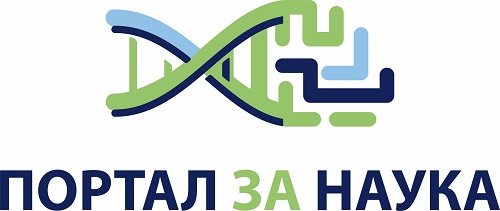Assoc. Prof. Dr. Tanya Dimova
The research of Assoc. Prof. Dr. Tanya Dimova is focused on immunology of pregnancy, placental microbiome, foetal and neonatal immunity. She manages projects funded by Research Fund and works in collaboration with obstetricians and gynaecologists from University Hospital Maychin Dom, and Sofia Medical University and with microbiologists from the Institute of Microbiology at Bulgarian Academy of Sciences. Assoc. Prof. Dimova works also in constant collaboration with scientists from abroad, in whose groups she has worked over the years – Dr. David Vermijlen from Institute of Medical Immunology, Belgium, Dr. Lucia Mincheva-Nilsson from Department of Clinical Immunology, Faculty of Medicine, Umea University, Sweden and Dr. Gil Mor from Department of Gynecology, Obstetrics and Reproductive Sciences, School of Medicine, Yale University, USA. Dr. Dimova’s latest research is focused on the profile of T cells and their role in implantation and normal pregnancy in women. The acquisition of new knowledge of immunology of implantation with a view to achieving successful pregnancy will help reduce the incidence of immunological infertility based on the cytotoxicity of maternal immune cells.
Dr. Dimova published, together with a team of scientists from the group of Dr. Vermijlen, interesting data on the functional maturation of γδ T cells in the blood of human foetuses very early during embryonic development (around the 20th week of gestation). The results were published in the prestigious journal of American Academy of Sciences – Proceedings of the National Academy of Sciences of the United States of America (PNAS) and the article was selected as particularly interesting in the loutnal section “In This Issue”. The research of the group of Assoc. Prof. Dimova on the placental microbiome is also very interesting – a completely new and current topic worldwide. It is focused on the placental transfer of mycobacterial L-forms.
The joint work of Dr. Dimova and Dr. Nadya Markova shows that the blood of pregnant women who have been BCG-vaccinated in childhood contains live mycobacterial L-forms originating from the BCG vaccine strain Mycobacterium bovis. These bacterial L-forms are able to multiply and to penetrate in the newborn’s circulation through the placenta. Interestingly, however, these L-forms are reversible and can be converted in in-vitro cultures to their original forms – typical mycobacteria. These results have been published in prestigious scientific journals, including Nature Scientific Reports. Regardless of the fact that the effectiveness of BCG vaccine containing live bacteria has been debated for decades and that BCG vaccination in Bulgaria has been mandatory since 1952, we still know very little about the mechanisms of long-term persistence of M. bovis BCG bacilli in the body. Their presence proved to be particularly relevant in the context of COVID-19 viral infection. Transplacental transmission of mycobacterial L-forms opens the door to new research on the role of placental microbiome in building the immune system of both the foetus and newborn in the short or long term. Being a Fulbright fellow, Assoc. Prof. Dimova was invited and specialised at Yale University, School of Medicine, USA, in the group of Dr Gil Mor, a world-renowned scientist in the area of reproductive immunology and president of American Society for Reproductive Immunology. There, she developed in vitro models for immunological rejection of the foetus in an environment of excessive inflammation and cytokine storm induced by maternal T lymphocytes.
Currently, Assoc. Prof. Dimova and her group are working on a project funded by National Research Programme VIHREN in the category Established Researcher to create and validate innovative 3D organotypic models for studying the interactions between embryo and maternal immune cells in (unsuccessful) successful implantation in women (3DModeInAction).
The work on this project aims to study the role of T lymphocytes in (unsuccessful) successful implantation in women, and the possibility for modulating the maternal immune response in a direction favourable to the embryo. For this purpose, an innovative approach to study the immune cells during implantation will be applied. It will be based on the construction of 3D organotypic cell models, which use embryo-surrogate and “recreate” the microenvironment of maternal-foetal contact. This provides unique opportunity to study the process of implantation in women, which is otherwise inaccessible. Recurrent implantation failure syndrome is still unexplored and is a major reason for infertility in healthy women, and approximately 10% of women involved in in vitro fertilisation (IVF) programmes suffer from recurrent implantation failure. Therefore, the data obtained will be useful for IVF in view of the immunotherapeutic treatment of this syndrome. In addition, new data will be obtained to modulate the survival, development and function of embryonic trophoblast. Given the similarities in trophoblast invasiveness and tumour invasiveness, this data can be easily translated into the research on T-cell cancer immunotherapy (topical and promising therapeutic approach). This project proposes an interdisciplinary study through application of applied bioconstruction to the study of immune processes.

 Next Post
Next Post